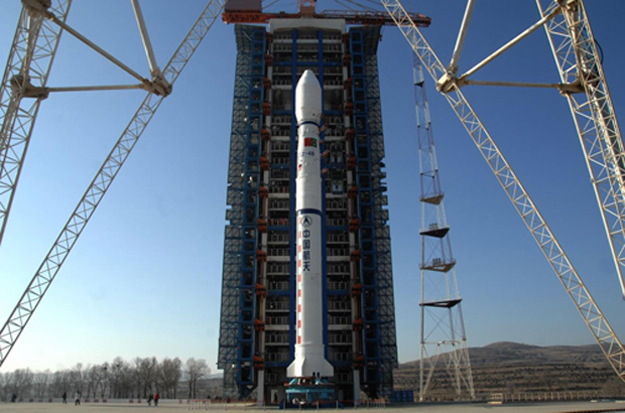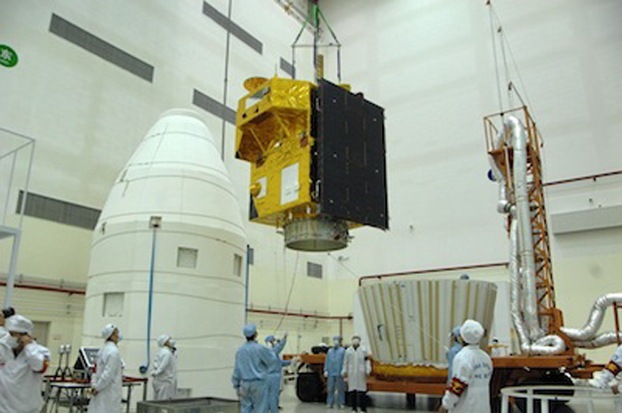Chinese Rocket Failure Destroys Earth-Observation Satellite

China's state-run Xinhua news agency released a three-paragraph story on the rocket malfunction. Engineers are analyzing the cause of the failure, Xinhua reported.
"The data obtained show that the subsystems of CBERS 3 functioned normally during the [launch]," INPE said.
The compact car-sized CBERS 3 satellite was supposed to enter a 483-mile-high polar orbit with an inclination of 98.5 degrees.
Brazilian news reports said the satellite cost $250 million, with Brazil and China equally sharing the investment. Folha de S. Paulo reported the launch cost $15 million.
CBERS 3 was the fourth China-Brazil Earth Resources Satellite launched since 1999. Its three predecessors are no longer functioning, forcing Brazil to purchase Earth observation data from other countries.
China and Brazil started cooperating in Earth observation programs in 1988.
CBERS 3 was built by the China Academy of Space Technology, with two of its imaging instruments coming from Brazil and two from China. It was designed for a three-year lifetime.
The satellite's cameras were supposed to collect black-and-white imagery with a top resolution of about 5 meters, or about 16 feet. Its sensors included thermal and infrared imagers capable of distinguishing different types of vegetation and locations where water is stored and consumed.
Breaking space news, the latest updates on rocket launches, skywatching events and more!
According to INPE's website, Brazil uses CBERS data to monitor wildfires and deforestation in the Amazon rainforest, observe crop yields and trends in land use, manage water resources, and study urban development.
Like its Landsat counterpart in the United States, the CBERS project distributes imagery for free on the Internet. INPE says it provides about 700 images per day from the CBERS data catalog to hundreds of environmental institutions around the world.
China and Brazil are working on their next joint satellite - CBERS 4 - for launch in 2015. After Monday's launch failure, officials agreed to start discussions in anticipation of the launch of CBERS 4, according to INPE's statement.
Follow Stephen Clark on Twitter: @StephenClark1. Copyright 2013 SpaceflightNow.com, all rights reserved.
Stephen Clark is the Editor of Spaceflight Now, a web-based publication dedicated to covering rocket launches, human spaceflight and exploration. He joined the Spaceflight Now team in 2009 and previously wrote as a senior reporter with the Daily Texan. You can follow Stephen's latest project at SpaceflightNow.com and on Twitter.



